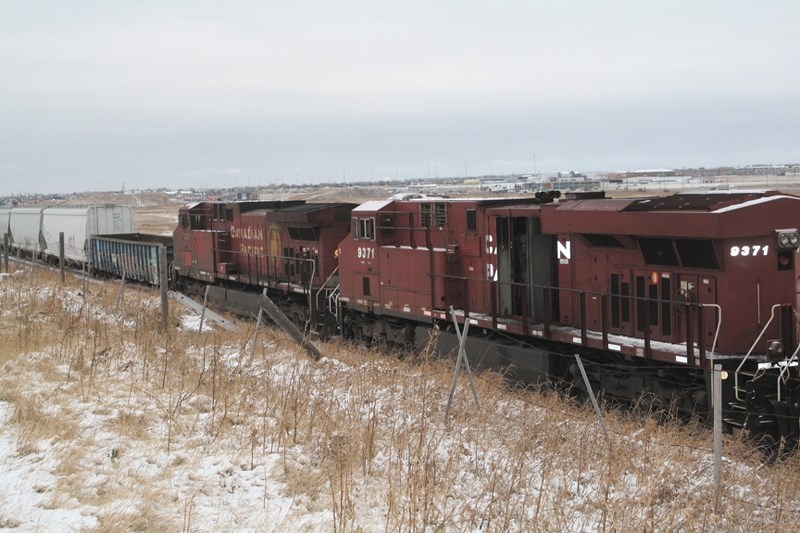ATHABASCA – Alberta Pacific Forest Industries Inc. (Al-Pac) is preparing for the worst following an announcement of a dual labour strike on Canada’s two major rail lines.
Both Canadian National Railway (CN) and Canadian Pacific Kansas City (CP) have announced lockouts for union workers which started Aug. 22 after the Teamsters union and both companies jointly complained of bad faith negotiations.
“We’re very frustrated by the uncertainty this creates. We’ve had four-plus years of supply chain disruptions in Canada; our markets in Asia are wondering what the heck is going on in Canada,” said Brent Rabik, Al-Pac’s VP of sales and supply chains. “This is going to be huge to Canada as a whole, and certainly to Al-Pac.”
Al-Pac is Athabasca County’s largest employer, and its mill site is the largest single-line kraft pulp producer in North America. Around 95 per cent of the company’s product is shipped via rail — Al-Pac only has access to CN’s rail lines — and an inability to transport the pulp poses a variety of issues.
“Now that we have the date, we have scheduled a short outage to coincide with this, and that would start the second week of September,” said Rabik. “We need to run the mill through the first week and then we’ll shut down, although I’m not sure we’ll make it that far.”
To help prepare for the strike, Rabik said Al-Pac has been filling rail cars, as well as securing additional storage in Edmonton. The company has also taken steps to ensure it has placed pulp in storage sites in the United States, which Rabik estimates accounts for 70 per cent of Al-Pac’s business.
“We’ve been getting as much across the border and into warehouses as we can,” said Rabik. “How long they are out for will determine when we come back up; that’s the scary part of this. We have no idea how long the government will allow this to go on.”
To maintain its regular level of production, the mill would need around an extra 60 semi-trucks a day — each rail car holds as much product as two-and-a-half trucks, and Al-Pac fills roughly 24 rail cars a day, 350 days a year.
“Through COVID and other supply chain disruptions, we’ve had to truck a fair bit, but we aren’t really geared for that,” said Rabik. “There’s a limit to what we can truck just from our on-site infrastructure.
Beyond northern Alberta
Al-Pac isn’t the only mill in Canada affected by the strike; the Forest Products Association of Canada (FPAC) put out a statement from president and CEO Derek Nighbor condemning the lack of government action.
“It’s frustrating for workers and small businesses who are innocent bystanders,” he said. “What’s not being talked about enough is how it’s a massive drag on Canada’s competitiveness and international reputation.
“All indications are negotiations are not progressing. If that is in fact the case, the federal government has an obligation to act immediately.”
The Liberal government has called on both sides to work out a deal, but nothing has come from the calls yet. CPKC called for a binding arbitration conducted by the federal government, saying the union had made unrealistic demands. For its part, the union has protested alleged CPKC plans to remove safety critical fatigue provisions, and a CN relocation clause that would force employees to move across Canada for months at a time to fill labour shortages.
“We’re putting whatever pressure we can on the government to intervene because we think both sides are very far apart,” said Rabik. “This is going to cause a lot of stress in organizations. It already has started impacting us financially and reputationally.
“This is huge for Canada as a whole, and certainly the forestry industry.”



